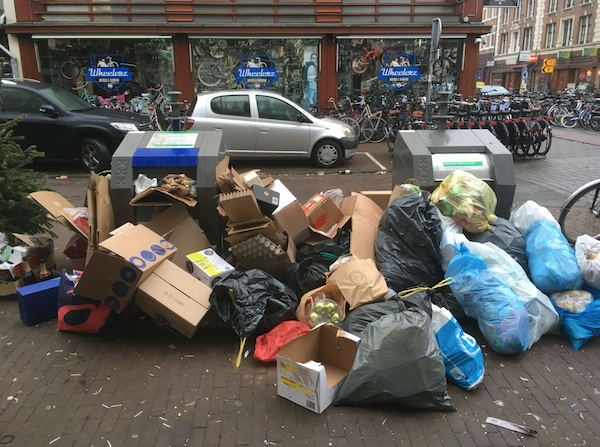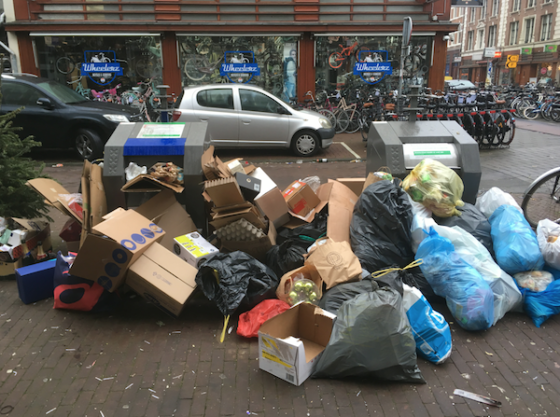Less waste, more recycling top Amsterdam’s circular city plans


Amsterdam council on Wednesday launched its strategy to make the city’s economy fully circular by 2050 and to cut the use of raw materials by half in 10 years’ time.
The plans include changes in the way the city processes domestic rubbish, efforts to cut food waste, more sustainable construction and a focus on re-using unwanted products.
‘We currently live in an economic system in which we incinerate discarded products, including their valuable raw materials, labelling them as ‘waste’. Considering the scarcity of raw materials in the world, this is unforgivable,’ Marieke van Doorninck, the city’s alderman with special responsibility for sustainability said.
‘We also have to be prepared to share more products and repair things when only one component is broken. In doing so, we will preserve the raw materials that we so badly need and also reduce our energy consumption.’
Paint
The city is already working with companies and research institutes on some 200 projects that, officials say, will contribute to the circular economy. For example, a pilot project is underway with the paint industry and second-hand shops to collect unused latex paint and make it suitable for resale.
The strategy is based on the ‘doughnut model’ by British economist Kate Raworth, a framework which helps identify what societies and businesses can contribute to economic development while still respecting society and the environment.
In 2018, the national government also launched a plan to ensure that the use of new raw materials is halved by 2040 years and that the economy is fully circular by 2050.
Although some 80% of waste produced in the Netherlands is currently recycled in some form, recycled waste only accounts for 8% of the raw material used to make new products.
Thank you for donating to DutchNews.nl.
We could not provide the Dutch News service, and keep it free of charge, without the generous support of our readers. Your donations allow us to report on issues you tell us matter, and provide you with a summary of the most important Dutch news each day.
Make a donation